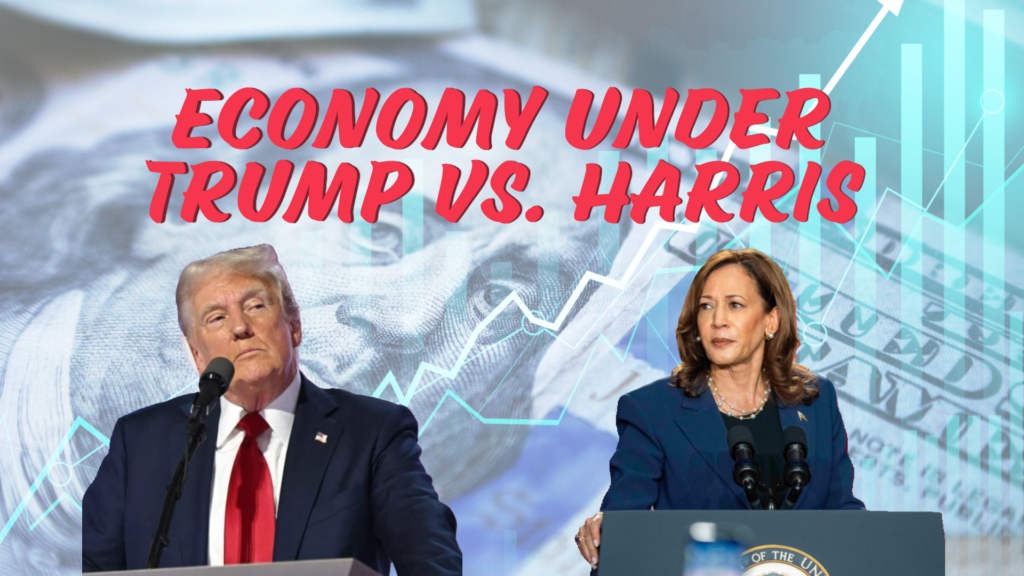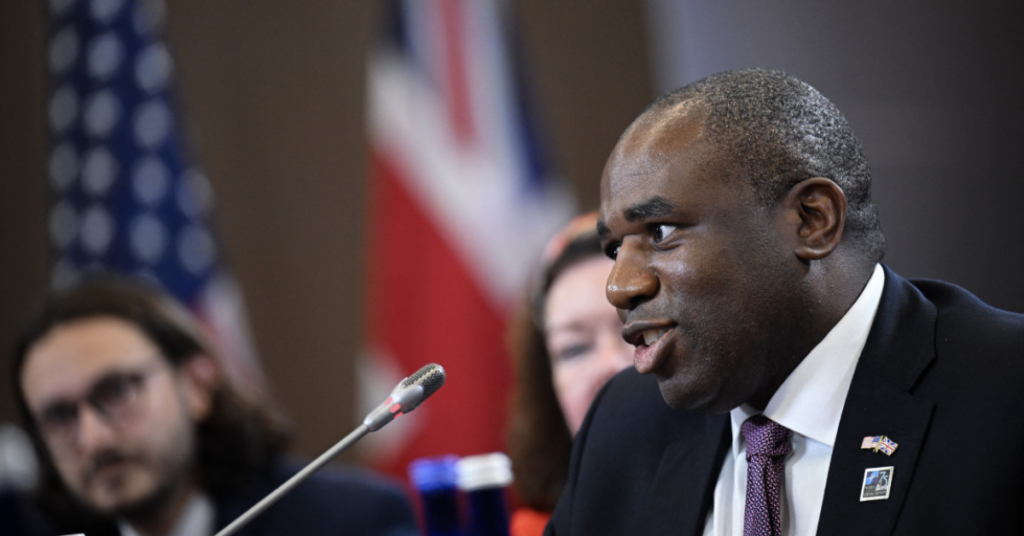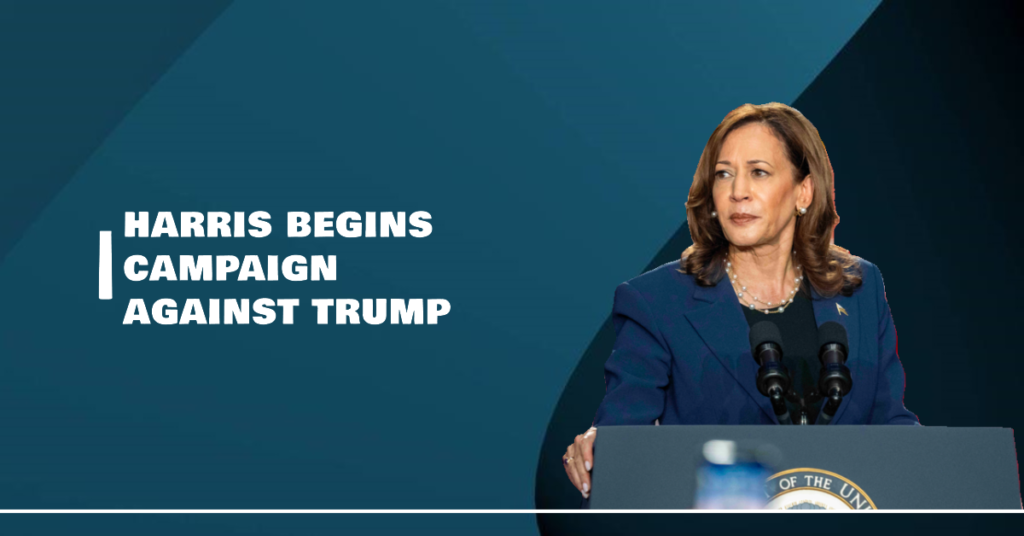
Why eShopy.in is India’s Go-To Destination for Original Electronic Gadgets
In today’s digital-first world, the demand for authentic, high-quality electronic gadgets is at an all-time high. Whether you’re a college student looking for budget tech
Today's Headlines and Tomorrow's Discounts

The two candidates are worlds away when it comes to taxes, deregulation and DEI. But in other key areas, they have expressed goals without fully articulating how they plan to achieve them.
Throughout President Joe Biden’s tenure in the White House, inflation has been the prevailing economic concern. This focus on inflation has overshadowed other significant elements of Biden’s economic strategy, which includes a robust labor market, improved economic conditions for lower-income workers, and substantial investments in green energy, infrastructure, and domestic manufacturing.
Despite these accomplishments, persistent inflation and rising prices have kept Biden’s approval ratings low. Coupled with concerns about his age, these factors ultimately led Biden to withdraw from the 2024 presidential race.
Former President Donald Trump, now the GOP nominee, boasts his own economic track record. His tenure was marked by significant tax cuts, deregulation, and trade wars, particularly with China. Trump is doubling down on these policies, promising more of the same, along with mass deportations of undocumented immigrants. Many economists argue that an increased supply of foreign-born workers has helped stabilize the labor market in recent years.
Michael Brescia, CEO and co-founder of Cerus Markets, notes, “Trump appears to be promising similar policies and actions if he is elected again. Whether markets reward or penalize him for that is anyone’s guess. Academics and common sense might tell you higher tariffs and increased debt aren’t good for stocks or the dollar. But equity markets brushed those concerns off during his first term.”
Vice President Kamala Harris, now the presumptive Democratic nominee, is tied to the Biden economic agenda but is also introducing her own ideas, focusing on family-friendly policies like paid leave and child care support. Harris aims to address the practical issues faced by working families rather than engage in complex policy debates. However, any legislative efforts will face significant opposition if Republicans control either the House or the Senate.
Trump favors significant tax cuts for corporations and the wealthy, proposing to lower the corporate income tax rate from 21% to 15%. In contrast, Harris has indicated she would like to raise the corporate tax rate back to 35%. Michael Linden, former executive associate director at the White House Office of Management and Budget, observes, “Lowering taxes on business and wealthy individuals has long been a cornerstone of Republican economics.”
Harris has pledged to adhere to Biden’s promise of raising taxes on the wealthy while sparing those earning less than $400,000. Nonetheless, she will need to find funding for expanded social programs.
Trump used tariffs as a tool in trade negotiations, particularly with China. He now proposes a broad 10% tariff on imported goods, with some items facing tariffs as high as 60%. Harris has not outlined a specific tariff policy, but the Biden administration maintained some of the tariffs from Trump’s tenure.
Trump advocates for deregulation, arguing that regulations stifle American industry. He has promised to reverse many of the green energy subsidies and mandates championed by the Biden administration. Trump and the GOP have also criticized diversity, equity, and inclusion (DEI) policies, which they believe hinder American companies. Despite this, domestic oil production has reached record levels during Biden’s administration.
Trump has criticized Federal Reserve Chairman Jerome Powell for not lowering interest rates quickly enough and has promised to address inflation and lower rates, though he has not detailed his approach. Biden has remained largely silent on the Fed’s actions, focusing instead on the downward trend in inflation over the past year.
Allianz Trade warns that a Trump victory could lead to increased issuance of Treasurys to finance higher deficits, potentially offsetting the benefits of lower interest rates. They caution, “Markets may be underestimating the potential impact on inflation, monetary, and fiscal policies should Trump decide to double down on his more disruptive campaign pledges.”
As the 2024 election approaches, the economic policies of Kamala Harris and Donald Trump will be scrutinized closely. Voters will weigh the benefits of Biden’s investments in infrastructure and green energy against the challenges of persistent inflation. Meanwhile, Trump’s promises of tax cuts and deregulation will appeal to his base but raise concerns among economists about their long-term impact. The outcome of this economic debate will play a crucial role in determining the next President of the United States.

In today’s digital-first world, the demand for authentic, high-quality electronic gadgets is at an all-time high. Whether you’re a college student looking for budget tech

Eshopy.in eShopy.in – Your One-Stop Destination for Authentic Electronic Gadgets In today’s digital era, having access to the latest and most reliable electronic gadgets is

How US Public Schools Became a New Religious Battleground Recent legislative actions in Republican-governed states like Louisiana and Oklahoma have introduced religious elements into public

PM Modi Reacts to Vinesh Phogat’s Olympics Disqualification PM Modi Consoles Vinesh Phogat: ‘You Are a Champion Among Champions’ After Olympics Disqualification Vinesh Phogat’s Olympics

The Economic Landscape: Biden, Harris, and Trump The two candidates are worlds away when it comes to taxes, deregulation and DEI. But in other key

UK Calls for UN Investigation into Bangladesh Turmoil, Avoids Mention of Sheikh Hasina Asylum UK Foreign Secretary David Lammy stated that his government hopes for

JBL, Harman Kardon, Bose, Benq, Qubo Distributor in Delhi Delhi, a bustling metropolis and the heart of India, is not just a cultural hub but

Mismanaged Delhi: All Because of AAP? Delhi, once known for its vibrant culture and bustling streets, is now grappling with severe mismanagement issues. Arvind Kejriwal,

belkin Wireless MagSafe Charging for Apple iPhones The rapid development of mobile technology has transformed how we interact with our devices. In a world that
Hostinger Hosting WordPress | Coupon Code for Hostinger Get Fast, Reliable, and Affordable WordPress Hosting with Hostinger If you’re searching for a reliable platform for

The Greatest of All Time – Trailer, Cast, Release Date & More The Greatest of All Time The trailer for “The Greatest of All Time”

Prime Minister Modi Anticipated to Visit Kyiv in August for First Time Since Russia-Ukraine Conflict Began : Reports Modi Plans First Visit to Ukraine Since

Discover the Best Car and Bike Insurance Deals with ACKO When it comes to insuring your car or bike, finding a reliable and affordable provider

Must-Read: Haryana Assembly Elections 2024 – Key Dates, Top Candidates, and Insider Info Here’s everything you need to know about the upcoming 15th Haryana Legislative

Harris Launches Campaign Against Trump, Emphasizing Law and Order Kamala Harris kicked off her presidential campaign with a speech highlighting the contrast between her experience

Stree 2 (Aug 2024) – Trailer, Cast, Release Date & More Stree 2 (2024) The much-anticipated sequel to the 2018 hit film “Stree” is finally

Joe Biden Steps Down from Presidential Race, Endorses Kamala Harris Joe Biden announced that he will continue to serve as President until his term concludes

Discover BadCreditLoans.com: Your Gateway to Financial Relief Discover Badcreditloans.com If you’re struggling with bad credit and need financial assistance, BadCreditLoans.com could be the solution you’re

India Names Suryakumar Yadav as T20I Captain for Sri Lanka Tour India will visit Sri Lanka in July-August for a white-ball tour featuring three T20Is

IIFM 2024: Ram Charan to Receive Prestigious ‘Ambassador for Indian Art & Culture’ Title This achievement underscores Ram Charan’s profound influence on Indian cinema and
